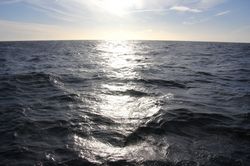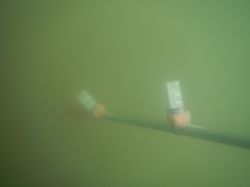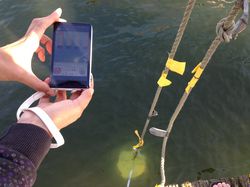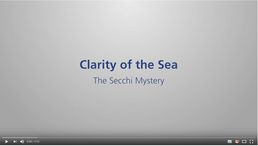Coastal Ocean Darkening
Research Projects
Coastal ocean darkening – Light availability in the past and future marine environment
Project description
Light availability in the coastal ocean is closely coupled to its physical, biological and chemical processes and is experiencing changes on all spatial and temporal scales. Several studies addressed the changing light climate in the ocean showing a global decline in phytoplankton as derived from increases in transparency or regional different trends in blueishing or greening of ocean basins. All these studies did not include coastal areas and only a limited number of papers so far approach the topic of a changing light availability. It is the core impetus of this proposal that coastal areas are highly sensitive to changes of the abiotic conditions but not well covered in terms of spectral light observations and sensitivity studies for future scenarios. Therefore the proposal will address the process of a potential decrease in light availability (coastal ocean darkening) covering the past and future 100 years in a unique combination of historic observations, hyperspectral sensing, biodiversity studies and modeling scenarios including an outreach to citizens and relevant enterprises.
Head
Prof. Dr. Oliver Zielinski
(Carl von Ossietzky University, Institute for Chemistry and Biology of the Marine Environment ICBM, Research Group Marine Sensor Systems
Contact
Project partners
- Prof. Dr. Emil Stanev, ICBM, Coastal Oceanography
- Dr. Maren Striebel, ICBM, Planktology
- Dr. Marcel Wernand, NIOZ, Coastal Systems
Cooperation partners
- TriOS Optical Sensors, Rastede, Germany
- Wittbülten Research Center, Island of Spiekeroog
- Ecomare Center for the Wadden and North Sea, Texel
Duration
4 years (2016-2020)
Financial support
Lower Saxony Ministry of Science and Culture (MWK)

![[Translate to English:]](/f/5/_processed_/3/2/csm_ICBM-Logo-transparent-_91fe1c6774.png)




